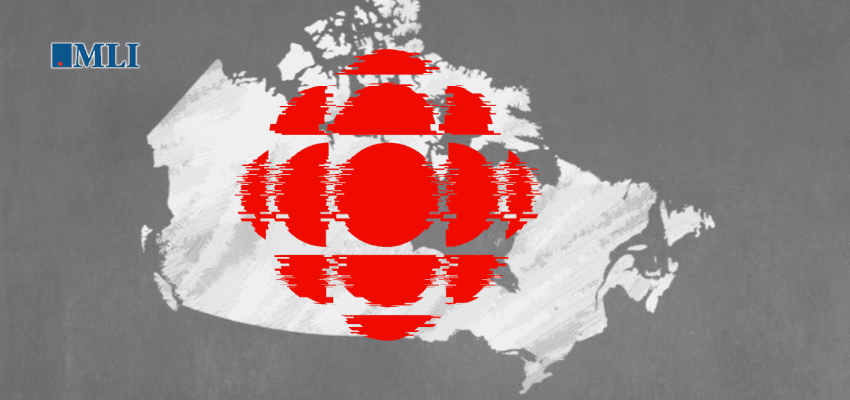This article originally appeared in the Western Standard.
By Peter Menzies, February 21, 2025
With one last kick at the cat, the Justin Trudeau government has confirmed its complete misunderstanding of the digital world and its impact on media. Heritage Minister Pascale St-Onge made that about as clear as it can get when she rolled out her vision for the CBC.
In a nutshell, what she wants to do is almost double the CBC’s public funding from its current level of $1.38 billion – $33.66 per capita – to $62.20 per capita or $2.488 billion, based on a population of 40 million.
St-Onge also wants to no longer allow CBC to charge subscription fees for some of its digital services and no longer allow advertising on any of its news programming, apparently including CBCNN and RDI which are all-news cable channels.
And she wants to make sure news is trustworthy, more local and impartial. The term “objective” appears to have been avoided.
As the Heritage Canada news release states “These modifications would highlight the essential role of CBC/Radio-Canada in the trustworthy and reliable broadcasting of news and information in the fight against prejudices, real or imagined, in today’s media.”
In the future, she hopes the CBC president will not be appointed directly by cabinet but by its board, which is to grow by two members to better represent all provinces and territories. The board members will continue to be appointed by the government with the assistance of an advisory council which will be appointed by the government. Two board members will have to have professionally-accredited financial expertise.
And she wants the CBC to be a leader in innovation, share its knowledge with other public broadcasters and, even though it is already part of the national emergency alerting system developed a decade ago, have its role as a source of emergency information embedded in the Broadcasting Act.
The idea that the board should have representation from all provinces and territories is a good one. As is the idea that at least a couple of the board members should understand finances at a professional level. Other than that, the Minister’s vision would, while making life ever so rosy for the CBC, have absolutely disastrous consequences for the nation’s media ecosystem and those within it.
St-Onge’s plan appears completely oblivious to its impact on private sector news providers currently struggling to build the revenue necessary to provide the nation with trusted news representing a variety of perspectives.
The CBC is already the largest news provider in the country, employing about one-third of the nation’s working journalists supported by a $1.38 billion annual subsidy that perverts the industry’s playing field in a fashion that makes it more challenging — if not impossible — to compete. Almost doubling that distortion will have a devastating impact on those providing alternatives to the CBC’s worldview. That includes everyone from Le Devoir and the Globe and Mail to The Western Standard and The Narwhal.
They, and others, are trying to grow their subscription bases in order to build a sustainable future for digital news delivery in this country. St-Onge, by banning the CBC from charging for its digital services, which are the future of news delivery, throws a huge wrench into those plans.
Adding an extra billion dollars to the creation of that news — which in her vision the CBC must give away for free while others try to convince Canadians to pay for it — will crush the innovation and entrepreneurship the industry sorely needs if it is ever to survive as a free press truly trusted to be independent from government.
Her changes to governance will do nothing to address concerns over inherent political and ideological favouritism at the Mother Corp. Having one set of government appointees put in place in consultation with another set of government appointees merely provides extra cover for the politicians appointing them.
And after all that, her plan still allows the CBC to compete with the private sector for advertising revenue in both the television broadcasting and digital spheres.
What she has done is completely misunderstand the realities faced by the news industry and, should her recommendations ever become reality, create a world in which private news providers either die or are forced to beg for even more of the subsidies the government has, in recent years, made them dependent upon.
She could have at least mitigated some of that impact by completely eliminating any advertising on all CBC platforms and pushed it towards more, not fewer, subscription-based practices so that readers — the market, if you will — would be empowered to directly pass judgment on the quality of its products.
Instead, St-Onge envisions the creation of a monstrous organization that, one way or another, would signal the end in Canada of a free and independent press accountable only to the people who trust it to hold the powerful to account.
Peter Menzies is a past vice-chair of the CRTC and a Senior Fellow at the Macdonald-Laurier Institute.






